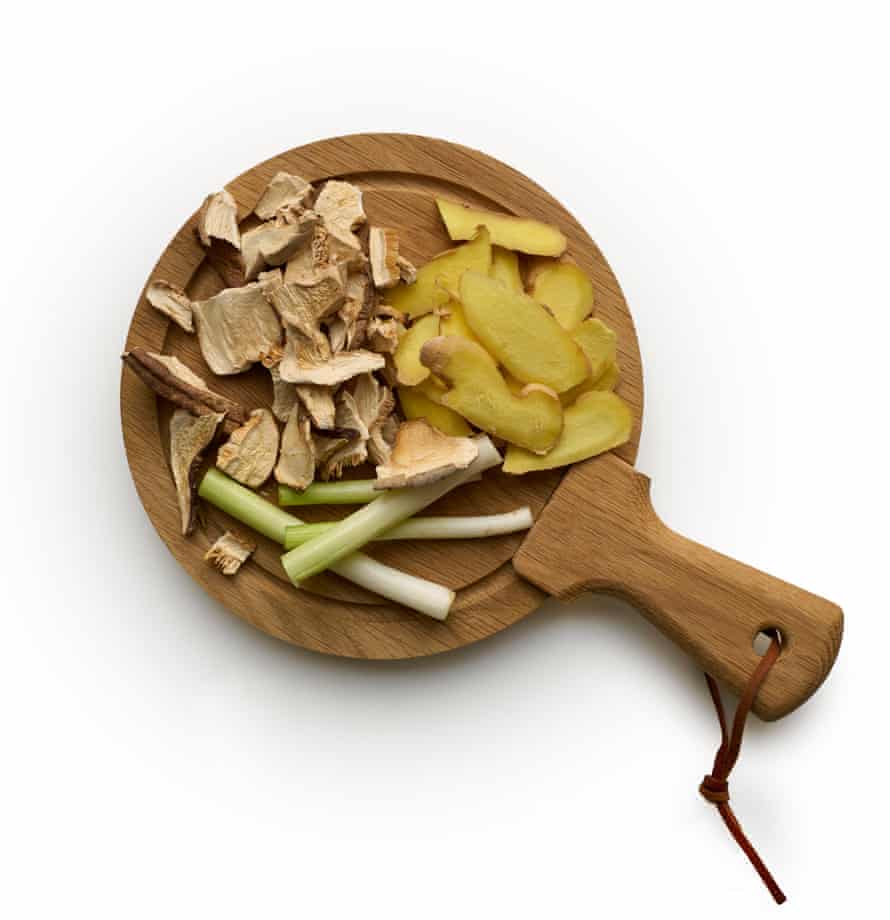
Images and Article from www.theguardian.com.
Ramen is more than just a noodle soup, though it is indisputably one of the best. It’s an international obsession, a dish with Chinese origins that’s said to define modern Japanese food culture, and now enjoyed on every continent. And I mean every: instant ramen is popular fare on polar expeditions. But at home, go one better and make some yourself.
Prep 10 min
Cook 3 hr 15 min
Serves 4
4 bunches ramen noodles
100g tinned sweetcorn
75g tinned bamboo shoots
For the broth
4 chicken wings
500g piece pork belly, rolled and tied
500ml good-quality chicken stock
5g dried shiitake mushrooms
15g root ginger, thickly sliced but not peeled
4 spring onions, whites only (save the tops to serve)
10g kombu (dried kelp)
For the eggs
4 medium eggs
1½ tsp caster sugar
100ml Japanese soy sauce
For the chilli sauce
300ml neutral oil
2 garlic cloves, peeled and finely chopped
1 spring onion, finely sliced
1 tbsp grated fresh ginger
20g chilli flakes
1 tsp sugar (optional)
1 tbsp sesame seeds
For the tare
150g red miso
150g white miso
2 garlic cloves, peeled and crushed
1½ tbsp sugar
1 tbsp mirin
1 tsp neri goma (Japanese sesame paste, optional)
1 tbsp oil
1 Variations on the theme
Though there are many different varieties of ramen, this umami-packed miso version from the northern island of Hokkaido is one of my favourites. Ramen generally consists of a rich, often meaty broth, noodles, a seasoning paste known as the tare, and toppings that can be varied according to preference (see step 9).
2 Making the stock in advance?
If you’re preparing the stock in advance, I’d recommend making another batch of the egg marinade as below, then submerging the cooked pork belly in it until you’re ready to cook the ramen itself. Otherwise, store the pork in the stock in the fridge once it’s ready, because this will stop it drying out too much.
3 Make the pork broth
Put the wings and pork belly in a large pot with the remaining broth ingredients and one and a quarter litres of cold water.
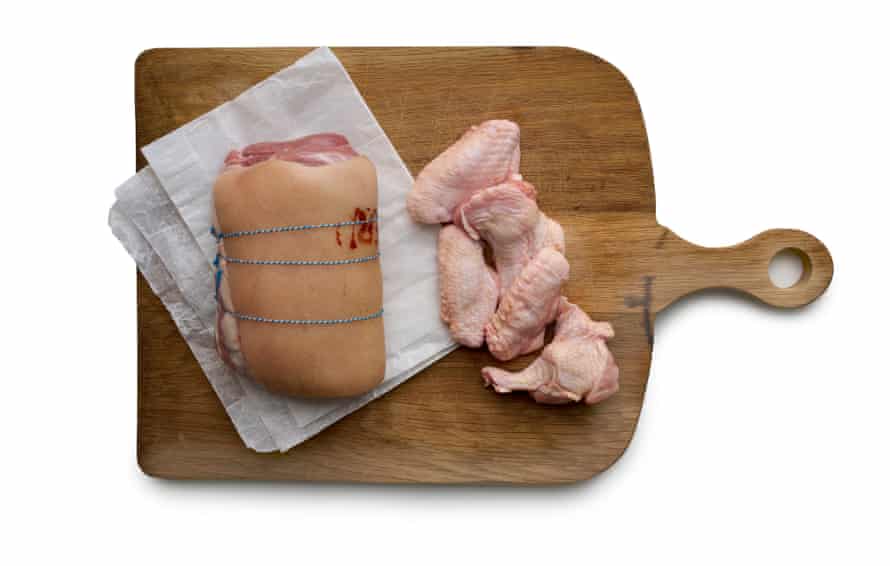
Bring to a boil, skim, turn down the heat, partially cover and leave to simmer gently for about three hours, until the belly is tender. (Vegetarians, leave out the meat, use vegetable stock and simmer for 15 minutes.)
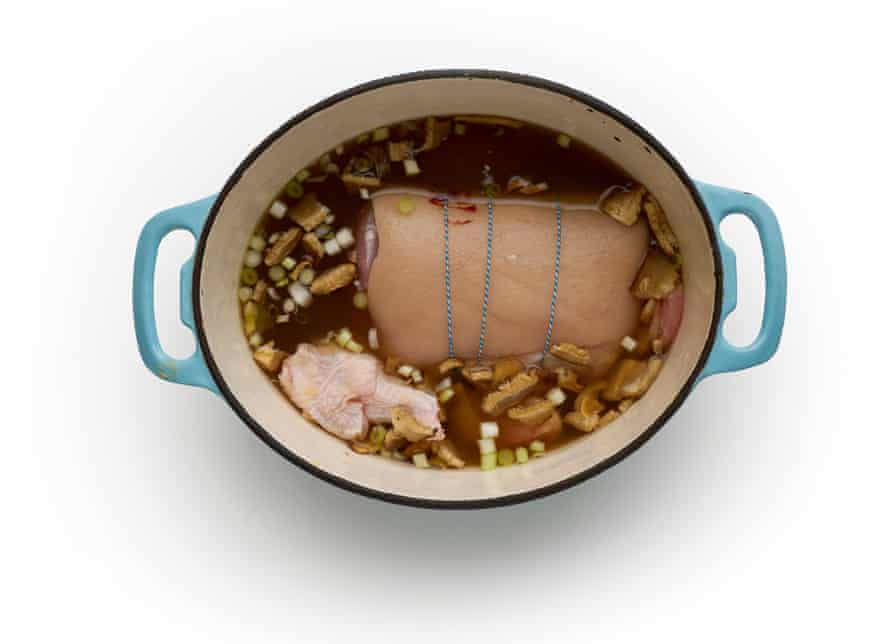
4 Marinate the eggs
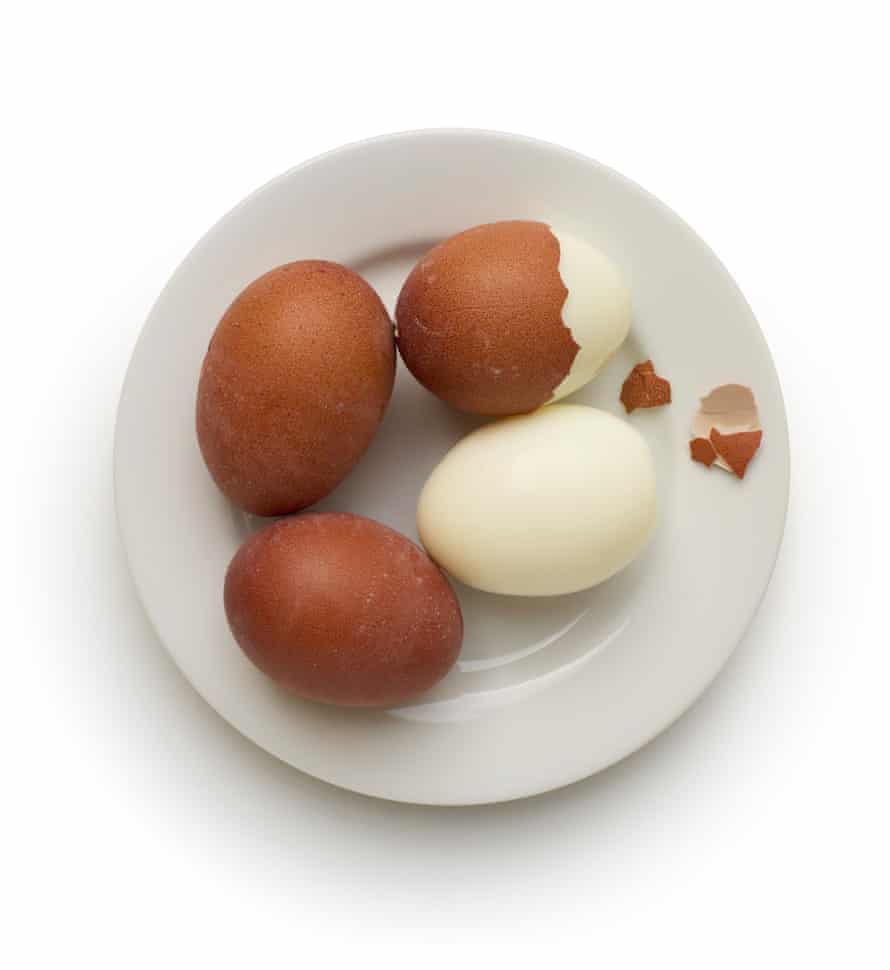
Meanwhile, pierce the eggs at the round end with a needle, boil for six and a half minutes, cool under cold water, then peel.

Whisk the sugar for the marinade into 100ml water to dissolve, stir in the soy sauce, then add the peeled eggs and marinate for at least three hours, or overnight in the fridge, turning occasionally so they colour evenly.
5 Make the chilli sauce
Put the oil in a medium pan with the garlic, spring onions and ginger, and cook on a medium heat until golden.
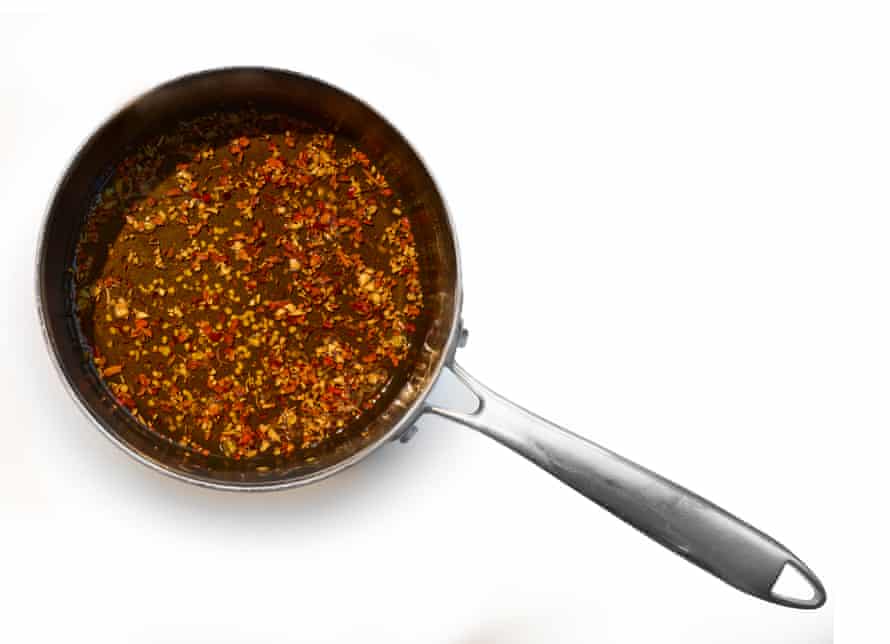
Add the chilli flakes and turn off the heat.
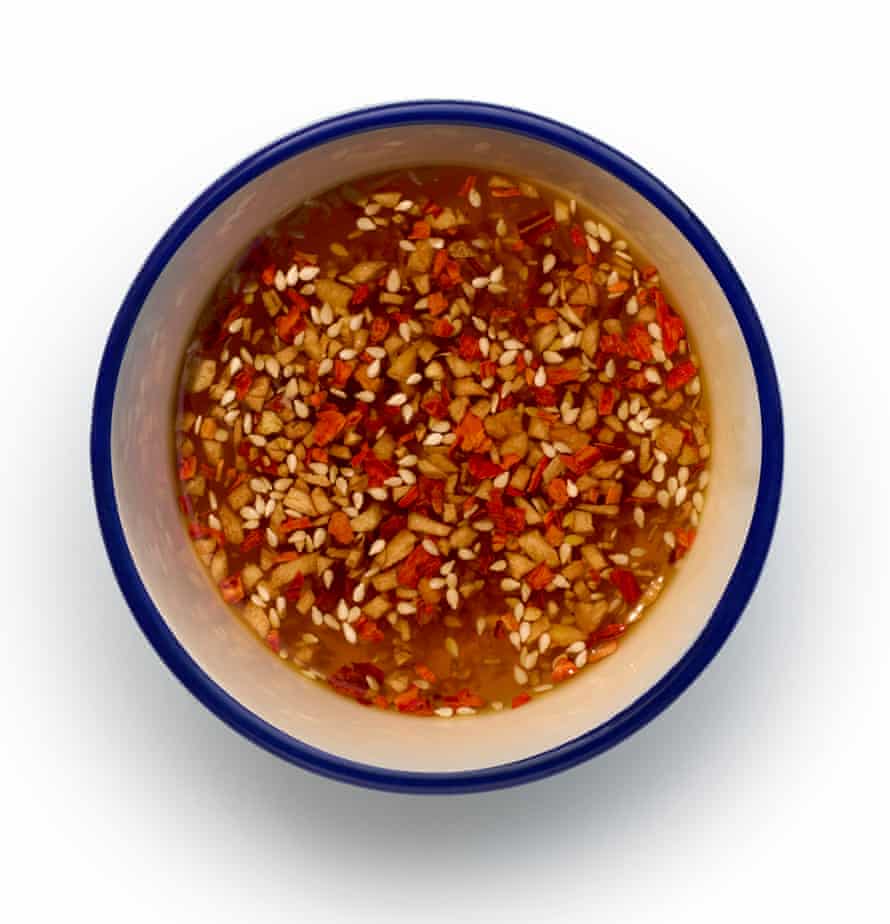
Stir regularly until cool, then mix in the sugar and sesame seeds. Store in a jar and use any left over on rice, noodles, vegetables and so on.
6 Make the tare paste
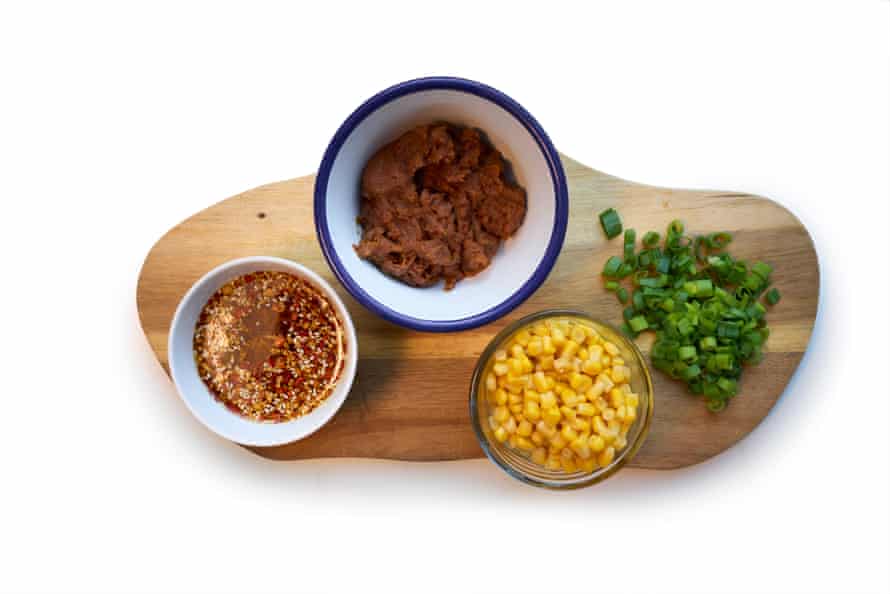
Mix all the ingredients for the tare except for the oil, then heat the oil in a small frying pan over a medium heat and fry the paste for five minutes, stirring regularly. (If you can’t find neri goma, tahini makes an imperfect but adequate substitute. If one of the miso pastes eludes you, use twice as much of the one you have.)
7 Prep the soup ingredients
When you are ready to eat, finely slice the reserved spring onion tops, discarding any tough, dry bits, and cut the pork into thin slices.
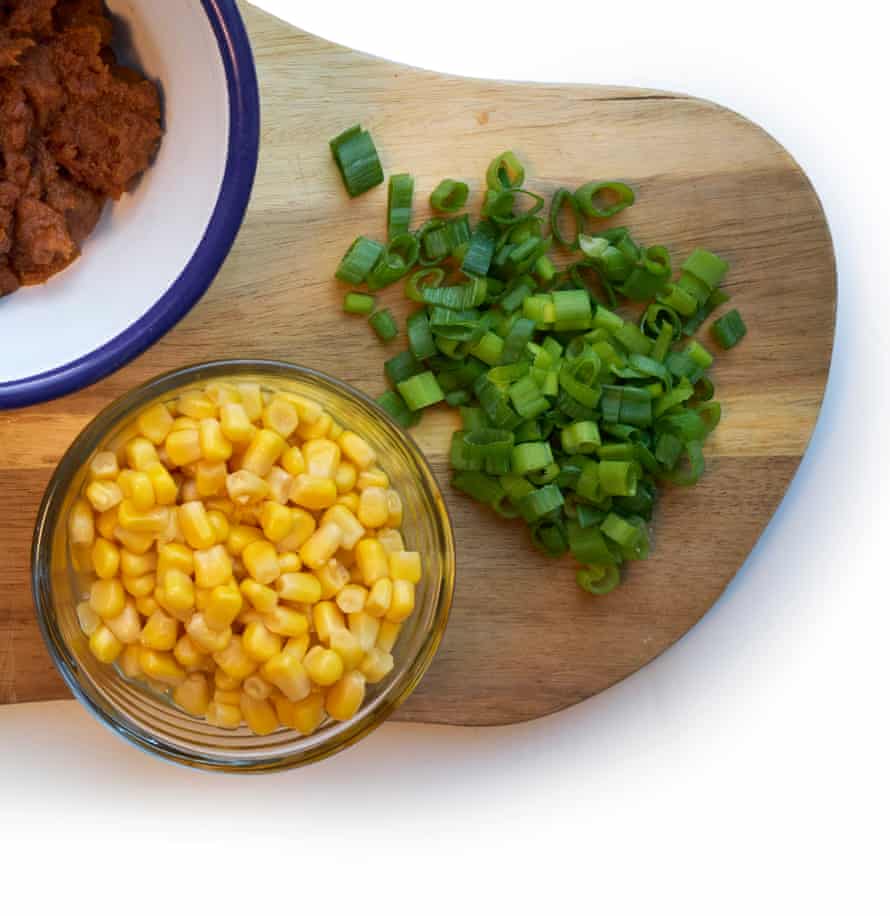
Carefully cut the eggs in half, bearing in mind the yolks should still be fairly liquid. Put all of these within easy reach of the hob, along with the chilli oil, sweetcorn and bamboo.
8 Assemble the soup

Heat the broth and whisk the tare into it to dissolve.
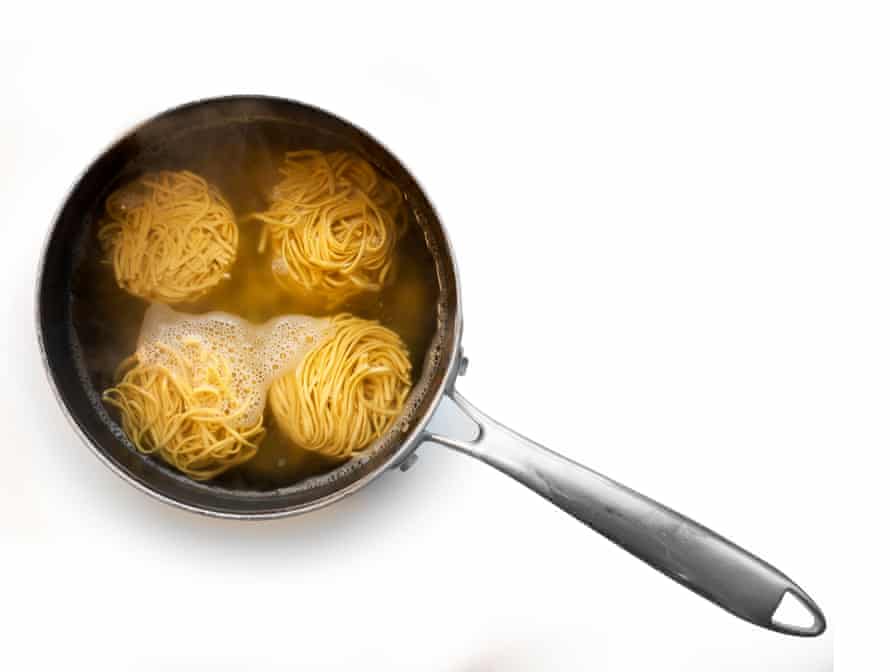
Cook the noodles according to packet instructions.
When the broth is steaming, divide the noodles between bowls and pour over the broth. Top with the eggs, pork, spring onion tops, sweetcorn and bamboo, and a dollop of chilli oil to taste. Eat immediately.
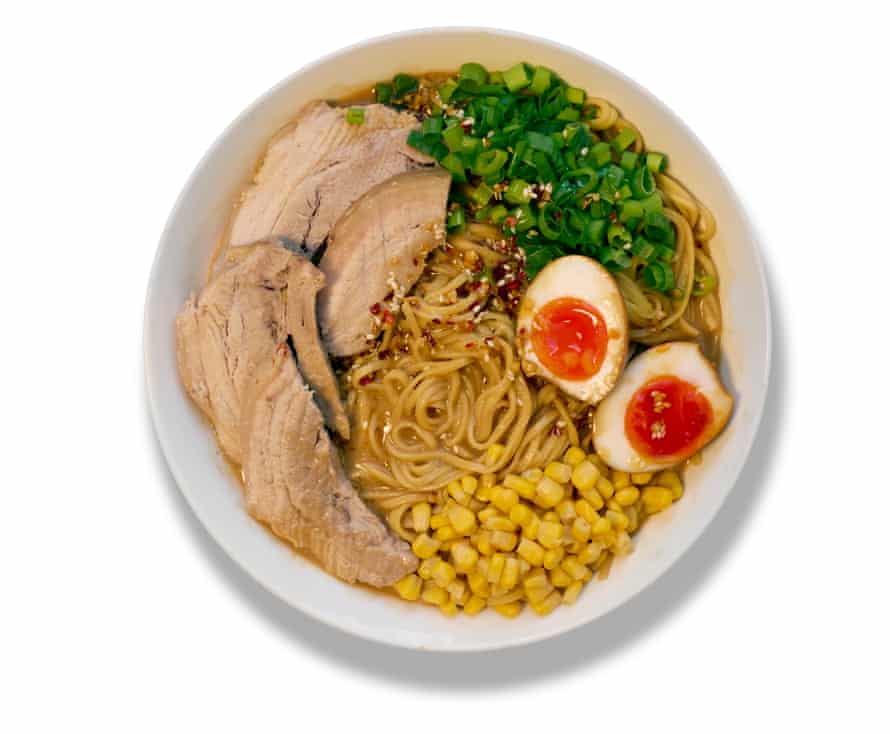
9 Toppings and options
Toppings are very much up to you: sweetcorn and bamboo are traditional, but most vegetables, cooked as appropriate, will work. Plant-based eaters might like some wobbly tofu in there instead of the egg, some sauteed mushrooms or indeed their favourite meat substitute in place of the pork – a few strips of seitan spring to mind.
Article shared from www.theguardian.com



